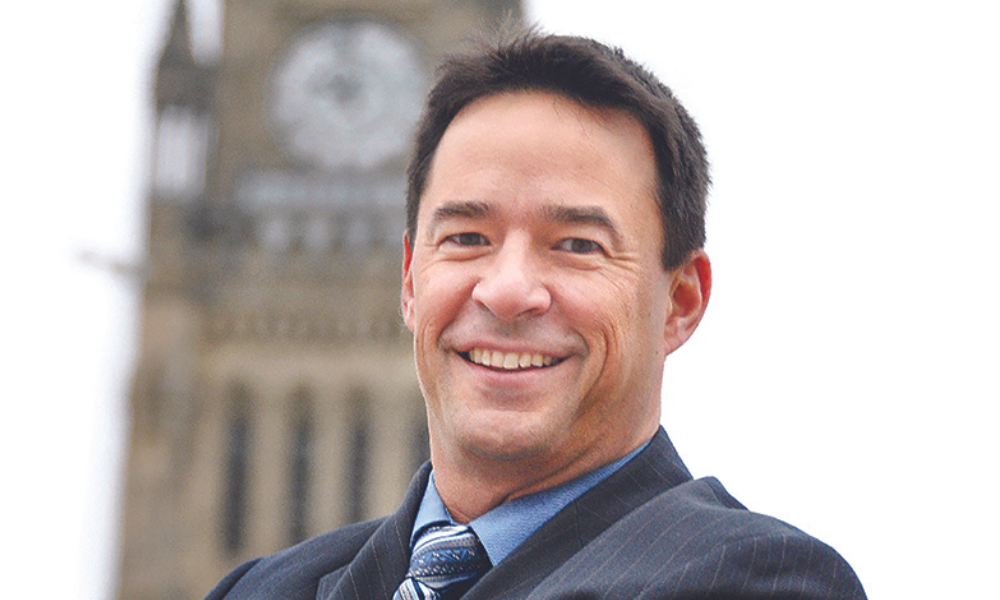Homebuilder advocate says rising rates present a significant barrier to new buyers – and new housing supply

New data from Ratehub showing that housing affordability plunged in 10 major Canadian cities last month will have come as little surprise to scores of would-be buyers across the country.
The minimum annual income required to buy an average home jumped in prominent markets – even those where home prices dropped – as higher interest rates and borrowing costs continued to bite down on affordability, particularly for new entrants to the market.
The figures make grim reading for buyers in Canada’s two hottest markets. In Vancouver, an additional $8,850 of income was required in June compared with the previous month to afford an average home – with a princely $235,650 income needed – while Toronto buyers would have to earn an additional $7,200 per year to afford a home last month over May.
Those findings only serve to illustrate what most housing market observers already knew: that affordability is continuing to climb out of reach for the first-time buyer cohort amid spiking interest rates and resurgent home prices in recent months.
Finding a solution to that crisis is easier said than done – although the Canadian Home Builders’ Association (CHBA) says a good start would be the introduction of a host of new policies by federal lawmakers to ease access to housing and counter the impact of rate hikes.
The association’s chief executive officer, Kevin Lee (pictured top) told Canadian Mortgage Professional that the Bank of Canada’s latest rate increase had underscored the need for new measures aimed at addressing inventory challenges and affordability issues facing prospective buyers.
“If interest rates are going to be in this position, then it’s just going to make it harder and harder for people to qualify for mortgages,” he said. “We’re all familiar with the 3.5 million additional homes that the government is targeting and rightly so.
“We do need a way to disaggregate housing supply and the potential for new housing supply from rising interest rates.”
Delays in residential project approvals appear to be unduly influencing the state of housing affordability nationwide, according to new research by Canada Mortgage and Housing Corporation (CMHC).https://t.co/VUgx5toTB5#mortgagenews #affordability #housingmarket
— Canadian Mortgage Professional Magazine (@CMPmagazine) July 17, 2023
What measures could help first-time buyers enter the market?
Lee restated CHBA’s long-standing call for the reintroduction of 30-year amortization periods for insured mortgages for first-time homebuyers, a move he said would be “the perfect solution” to get younger buyers into the market.
He also called for changes to the GST New Housing Rebate, a measure which allows individuals to recoup some of the tax paid for a new or significantly renovated house – but whose thresholds have not been updated since 1991.
“House prices have more than doubled since that time and then gone on even more in our largest urban centres where we really need more supply, and it’s become so difficult for first-time buyers to get in,” he said. “So we’ve been calling for a doubling of those thresholds, and that would have an immediate and very specific impact on affordability.”
Measures to boost housing infrastructure key, executive suggests
Lee said more investment in housing-enabling infrastructure, and a reduction in government-imposed costs when building a home, would also help bring more supply to market and increase purchasing opportunities across the country.
“The government does transfer a fair amount of money to the provinces and municipalities to support infrastructure – so making sure that that’s tied directly to positive housing outcomes in terms of more supply would be really beneficial,” he explained.
“And one would hope, too, that that could help offset the extremely high development taxes that municipalities have been levying on new developments, and [that] have gone up astronomically over the past couple of decades. So we do need more investment from all levels of government to help build more housing supply and also to avoid more taxes on the new houses that do get built.”
Purpose-built rental construction has long been a focus for the association, and Lee said policies focused at incentivizing a quicker pace of starts in that sector could also prove an effective way to help alleviate the inventory crisis.
“We feel that GST, HST should be completely zero-rated on purpose-built rental to help encourage more of that type of housing,” he said. “We need housing of all types, all tenures, all forms and a lot more of it – and purpose-built rentals are an important part of it.”
Make sure to get all the latest news to your inbox on Canada’s mortgage and housing markets by signing up for our free daily newsletter here.



